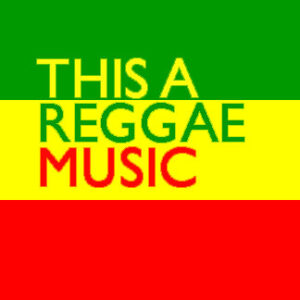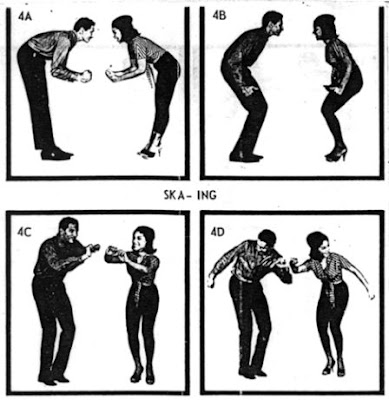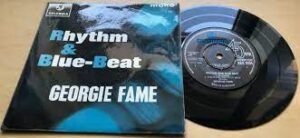
OLD SCHOOL REGGAE.
Part of what eventually became known as Reggae was originally called Blue Beat or Ska music.
My first relationship with this kind of music was in the sixties. At that time where there was a symbiotic relationship between at first, white mods (later hippies) and black West Indians. Both groups shared a common interest in “the herb” and us whites would find it easier to have a connection within the Jamaican community in order to score. There was a Jamaican who lived in the apartment next door in west London in 1967. His name was something like Rocket or Streak or something like that. Every pay day which was a Friday night we would knock on his door and go in to do the usual score of some ganja from him. He would roll up a spliff light it up and hand it on to us while he continued getting dressed up to go out for the evening. Black suit, white shirt, colored tie, narrow lapels, pointed shoes. He would put on the turntable these Blue Beat records at ear splitting volume through huge distorted speakers. Sometimes after an hour or so we would arise from the floor to find him gone for the evening and gone for another week.
Ska came to Britain with the West Indian immigrants of the early 1960’s and was initially known as ‘Blue Beat’ as some of the first records were released on the Blue Beat label.
The first international ska hit was ‘My Boy Lollipop’ by Millie Small which was in fact record in England in 1964 for Island Records. It is rumoured that a young Mod, Rod Stewart, was involved in the recording session – playing harmonica. Whatever the truth of this, ska was certainly very popular with the Mod crowd, who would often frequent West Indian nite clubs and could be seen as being the first and possibly only truly multicultural youth culture.
IT originated in Jamaica in the 1950’s, where American R&B artists like Fats Domino and Louis Jordan were very popular. Many Jamaican performers incorporated the 12 bar blues chord progressions and boogie bass lines of Fats Domino with African rhythms, placing emphasis on the offbeat. The new style of music became known as ska. One of the first people to record the ska rhythm was Ernest Ranglin.
something, and him say ‘make the guitars go Ska!,
Ska!, Ska!’ And that’s the way the ska name was born.”

Mods would also adopt some of the dances seen in these Jamaican clubs, and dances such as ‘the ska’ and ‘the blue beat swing’ became almost as popular as ‘the block’.
In the mid sixties the Flamingo Club in Soho was another club where whites and West Indians gathered. Georgie Fame and The Blue Flames were regulars and helped introduce this style to white audiences . HERE

Several ska hits followed through the 60’s including ‘Guns of Navarone’ by the Skatalites, ‘Rudy, A Message to You’ by Dandy Livingstone, ‘Liquidator’ by The Harry J Allstars and in 1969, ‘The Israelites’ by Desmond Dekker became the first Jamaican produced recording to become a number one hit in Britain. By the end of 60’s part of the Mod movement had evolved into Skinheads, who continued the racial mixing of the mods and their appreciation of Black music, whilst ska itself had evolved into Reggae.
The founder of Island Records was Chris Blackwell who was responsible for bringing many of these artists and the hits to the UK. Listen here.

